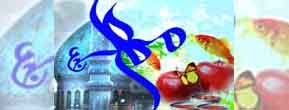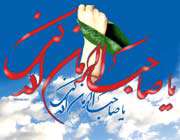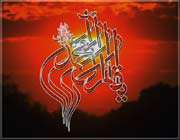Responding to Some Points Raised By Ibn Khaldun (Part 1)

3. Unreliable Simply Because of Being Shi’i
Often a tradition is deemed weak because its transmitter is a Shi’i. For example Ibn Khaldun rejected Qutn bin Khalifa one of the transmitters of the Mahdi traditions because he was a Shi’i. In this connection he quotes Ijli saying that Qutn was good in hadith but he was somewhat inclined towards Shi’ism.
Again according to Ahmad bin Abd Allah bin Yunus and Abu Bakr bin Ayyash Qutn was unreliable and his traditions were rejected because of his corrupt beliefs. On the other hand there were others like Ahmad bin Hanbal Nasa’i and so on who accredited him and regarded his traditions reliable. [26]
Another transmitter by the name of Harun was also regarded as weak because as Ibn Khaldun tells us he and his sons were Shi’ites. Some hadith scholars regarded Yazid bin Abu Ziyad a weak transmitter because "he was the leader of the Shi’is" and that he was among the Shi’is of Kufa. Commenting on Ammar al-Dhahabi Ibn Khaldun tells us that although prominent traditionists like Ahmad bin Hanbal Nasa’i and others had regarded him reliable Bishr bin Marwan because of his Shi’ism considered him weak. Also Abd al-Razzaq bin Humam’s traditions were regarded as weak because he narrated traditions relating the merits of the family of the Prophet and was famous for his Shi’ism. [27]
4. Difference of Creed
Another excuse used to discredit traditions reported by some pious and truthful individuals was the difference in creed. For example one of the sensitive issues that generated lots of debate and led to an inquisition at that time was that of the creation of the Qur’an. There were some in the community who believed that the Qur’an was not created in time and hence was eternal. Others believed that it had appeared at some point in time and hence was created. These two groups were engaged in not only heated arguments but also mutual condemnation. A number of the narrators of the hadith believed that the Qur’an was either created in time or that indicated that they had doubts about the issue. These narrators were discredited and condemned.
The author of Adwa’ ala al-sunna al-muhammadiya writes:
The scholars had condemned a group of narrators like Ibn Lahi’a as unbelievers. Their sin was their belief that the Qur’an was created. Moreover it is said that Muhasibi did not accept the inheritance from his father because he said: "Those who are dualists do not inherit from each other. I do not want my share of inheritance from my father."

The reason for his refusal was that his father was a waqifi that is he was doubtful in expressing his opinion whether the Qur’an was created or not. [28]
Just as extreme religious prejudices and differences became the cause for overlooking the trustworthiness and truthfulness of the narrators (thereby rejecting what they reported) shared belief on a matter and belonging to the same school of thought generated unwarranted trust of the narrators whose unreliability and corrupt character were overlooked. The situation was so critical that instead of verifying the credibility of the narrator they actually accredited them. Thus for example according to Ijli Umar bin Sa’d was among the reliable transmitters of the second generation of the companions of the Prophet whose traditions people had recorded.
This evaluation is contrary to the generally held fact that he was responsible for the murder of Imam Hussein (peace be upon him) whom the Prophet had declared the chief of the youth in Paradise and his beloved grandson. [29]
Such was the case with Bisr bin Artat who received an official assignment from Mu’awiya. He had massacred thousands of innocent Shi’is and used to publicly curse Ali bin Abi Talib the Prophet’s caliph. However such a person of low character has been excused for these heinous deeds and has been regarded as an independent and learned authority in jurisprudence. [30]
Regarding Utba bin Sa’id Yahya bin Mu’in writes:
He is reliable. Nasa’i Abu Dawud and Daraqutni have also regarded him trustworthy. On the other hand Utba bin Sa’id was a companion of the wicked Hajjaj bin Yusuf.
It is not difficult to see the double standards that were applied in accreditation of the traditions reported by individuals whom they favored. Bukhari accepted the traditions reported from Marwan bin Hakam in his Sahih and relied upon them. And yet Marwan was one of the major causes of the Battle of the Camel having encouraged and instigated Talha to fight against Ali. Then during the battle the same Marwan killed Talha. [31]
The author of Kitab adwa’ draws our attention to the fact that careful analysis of what these scholars did to authenticate Marwan clearly shows an endeavor to promote a wicked person like Marwan who favored killing Ali actually killed Talha and was responsible for the murder of Hussein bin Ali. On the other hand hadith compilers like Bukhari and Muslim discredited prominent scholars and memorizers of the Prophetic traditions like Hammad bin Maslama and the pious and god-fearing Makhul simply because of their disagreement on some issues related to the creed. [32]
All in all if any person narrated traditions in praise of the family of the Prophet and Ali bin Abi Talib or related traditions agreeing with the Shi’i beliefs some staunchly Sunni scholars suspected their hadith reports to be unreliable or declared them unconvincing. If this was the treatment of those suspected of Shi’i leanings then hadith reported by those whose Shi’ism was public knowledge received even more blunt treatment. Their traditions were rejected outright.

One need only read Tabari’s books to fathom the prejudicial treatment given to the narrators whose beliefs were contrary to the mainstream Sunni faith. According to Muslim the compiler of the Sahih Muslim Tabari says: "I met Jabir Ju’fi. But I did not record any tradition from him because he believed in raj’a (return of the dead before the emergence of the Mahdi)."[33]
Note: This time we will work on just ten parts of this useful book but as always accompany us for other parts of this book in future.
(26). Ibn Khaldun al-Muqaddimah p. 313.
(27). Ibid. p. 319.
(28). Abu Rayya Mahmud Kitab adwa’ p. 316.
(29). Ibid. p. 319.
(30). Ibid. p. 321.
(31). Ibid. p. 317.
(32). Ibid. p. 319.
(33). Sahih muslim Vol. 1 p. 101.
Source: The book named The Just Leader of Humanity
By Ayatullah Ibrahim Amini
Translated by: Dr. Abdulaziz Sachedina
Add new comment